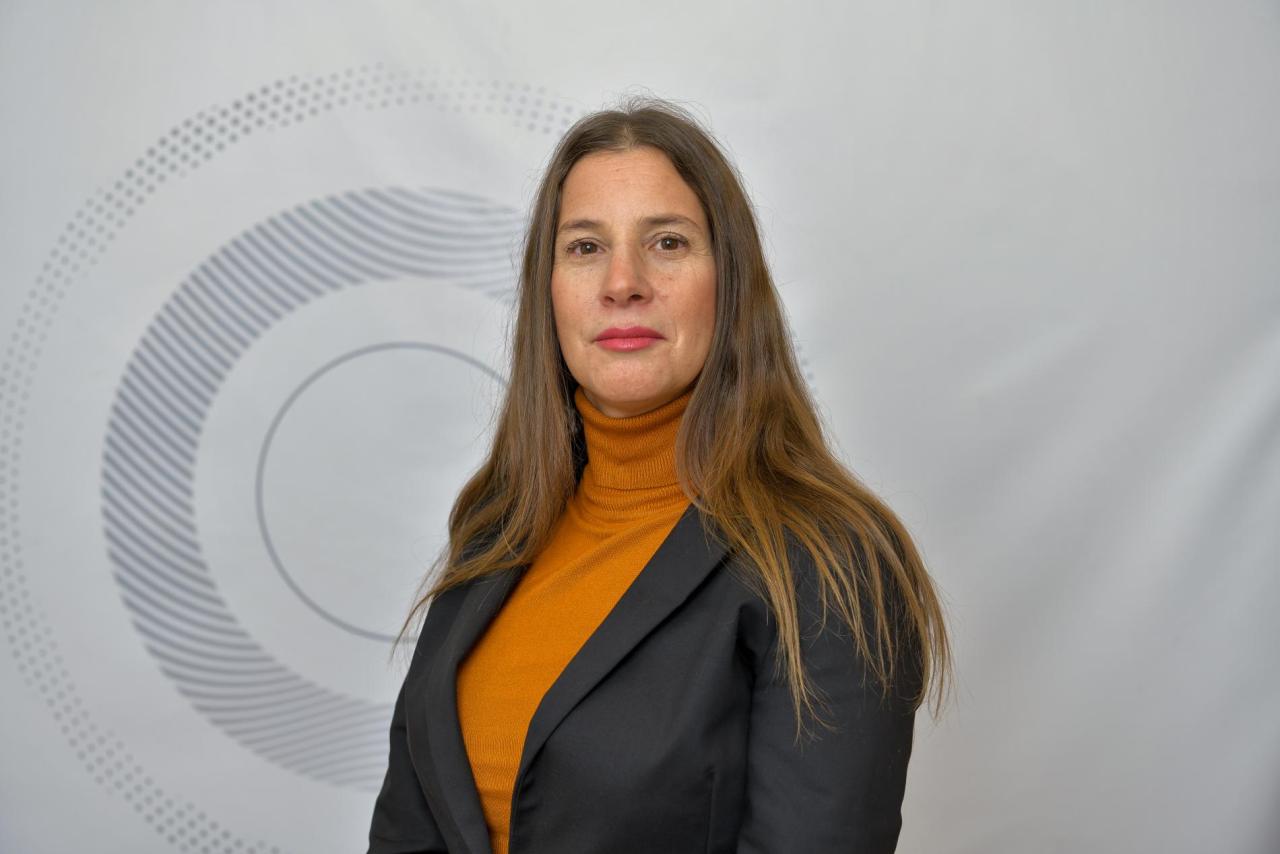Meet the Department Head
 Dr. Galia Hirsch, Head of the Department of Translation and Interpreting Studies
Dr. Galia Hirsch, Head of the Department of Translation and Interpreting Studies
B.A. in East Asian Studies and Spanish and Latin American Studies from the Hebrew University in Jerusalem
M.A. and PhD in Translation and Interpreting Studies from BAR-Ilan University in Ramat Gan
How often do you get asked, “what’s there to do with a degree in Humanities?” How have your answers evolve over the years, and what is your show-stopping answer today?
For me, personally, the answer has always been clear. I chose to pursue a B.A. in humanities knowing full well that from there I’ll move on to translation studies at our department. I specialized in Spanish as a way of reinforcing my so-called work language, and studying Chinese was a childhood dream of mine.
As for translation, the answer is straightforward. It is one of the world’s oldest professions, and despite technological advances, I believe that it would always be a necessity, one way or another.
What attracted you to the field? Why choose translation studies in this day and age?
I got into translation because I wanted to translate books, reading is my greatest passion. I remember reading Beatriz Guido’s Fin De Fiesta and really wanting my friends to read it too, but the book only came out in Spanish. So I thought I would translate books so that people I know could also enjoy them. I still sometimes come across books that I would have wanted to translate.
What’s an interesting anecdote from your academic career that can shed light on the research in the field?
There’s this story I always share with my students. I translated a book that strongly relied on Greek mythology, something that is well taught and well known in Spain, and less so in Israel. The publishing house wanted me to interview the author and let me translate the questions. For the most part, when I translate, I prefer to try and respect the original source material as much as possible, and transmit its meaning. In this instance, however, the questions were very direct, things like “Why do you think mythology is interesting to people?” or “Don’t you think the book is too difficult to read?” I very gently wrote to the publishers and explained that the questions might be interpreted as an assault and insult, and perhaps it would be best dropping one of the more extreme questions. Surprisingly, they took my advice.
I use this example in my theoretic course when discussing the Skopos Theory, a functional approach to translation research developed by Vermeer, which focuses on the goal of the translation and discusses, among other topics, the negotiations between the translation initiator and the translator. The Skopos theory views the translator as an expert in their field, so in an ideal world, their opinion would greatly matter when deciding the goal and characteristics of the translation. Such examples illustrate and help to understand the connection between theory and practice.
What other academic fields do you think go best with translation studies?
One of the prerequisites for being accepted into the department is a B.A., no matter in what field – and for good reason. We believe that the ability to translate is relevant to any profession or field of knowledge. A bachelor’s degree in law can help those specializing in legal translation, just as bachelor’s in biology will be useful for scientific translators. So in my opinion, translation is so vastly required, that all combinations are recommended.
What is unique about the department and Bar-Ilan University’s Faculty of Humanities?
At the Department of Translation we teach both theory and practice. I started out thinking about practical training, but eventually found myself more inclined to research.
I remember a formative moment in one of Prof. Elda Weizman’s pragmatics courses on Brown and Levinson’s Politeness Theory. This isn’t your classic concept of politeness, like eating with a knife and fork, but the notion that speakers are inclined to preserve their image and as such will preserve that of those around them; they will therefore attempt to reduce the effect of linguistic actions that damage or threaten that image. Preserving the public image is a two-faceted idea: preservation of a negative image reflects the desire to protect freedom of action and territory – questions and requests, for example, threaten this facet of the image; and preservation of a positive image reflects the aspiration for affection and appreciation – an example of a threat to the positive image would be a lecturer ignoring a student raising their hand in class.
When we started analyzing linguistic interactions in class according to this perception, I got answers to many issues that intrigued me. It felt like the world had suddenly fit together. Since then, I became very interested in theoretical thinking in the field of pragmatics and translation research.
What is the most important tool or skill that people engaged in the humanities should develop?
I think the most important tool to develop in any field is logical thinking. The way I see it, beyond being essential to science to enable precise and orderly analysis of phenomena and processes, logical thinking is also necessary for coping with different day-to-day situations. Developing logical thinking helps with argument construction, problem solving, and most of all with understanding the world around us.
.Sadly, I don’t see the imparting of this mode of thinking being prioritized



